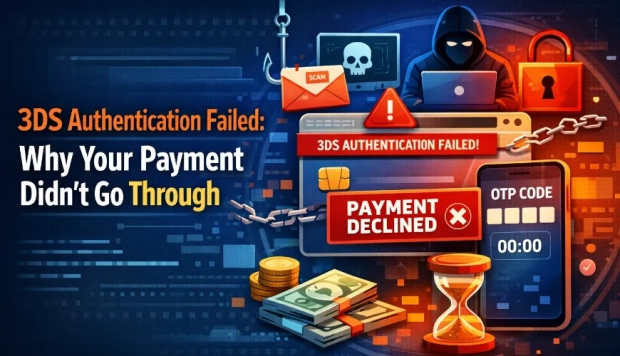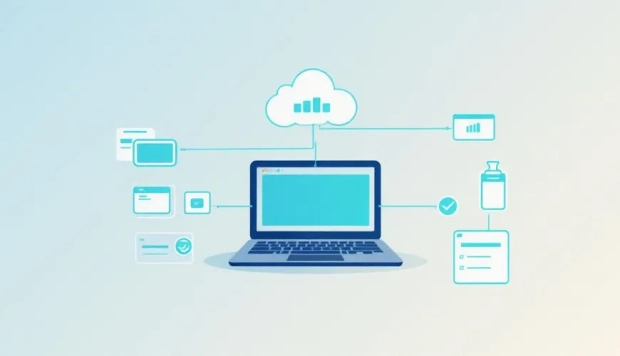How College Students Can Leverage Email Networking for Career Growth

You don't have to wait until you graduate to start making career connections. Smart students start networking early, and email is the best way to do it.
Networking by email is always better than networking events that are awkward. You may look up to people ahead of time, write nice messages, and get in touch with professionals all around the world. You can also do it from your dorm room in your pajamas.
The secret is to think of networking as developing relationships, not looking for jobs. People react differently when you ask them to help you instead of asking them to do something for you. They remember students who showed genuine interest in their career journey.
Smart Email Networking Strategies for Students
Email offers students unique networking advantages that campus events simply can't match. While in-person networking is limited by geography and schedules, email lets you connect with industry leaders who never visit your school and professionals across time zones without travel costs. What makes email particularly effective is that busy professionals actually prefer it - they can respond thoughtfully when it fits their schedule, rather than giving rushed answers during brief campus encounters.
This time-efficient approach mirrors how students manage their own demanding schedules. Just as learners sometimes turn to professional writing service https://ca.edubirdie.com/pay-for-homework to handle challenging assignments, professionals appreciate communication methods that respect their limited time. A well-written email frequently gets greater results than cold calls or LinkedIn messages that aren't personal. This is because it lets people respond in a meaningful way.
The real power of email networking lies in its lasting impact. Unlike one-time meetings that are easily forgotten, email creates a documented conversation history. This paper trail lets you reference previous discussions, demonstrate your growing knowledge, and build meaningful professional relationships over time - a crucial advantage when you're competing with hundreds of other students for opportunities.
Finding the Right People to Contact
Start with your existing network before branching out to strangers. Your professors know industry professionals and often make introductions for serious students. Career counselors maintain extensive alumni networks and industry contacts.
Alumni directories are goldmines for networking opportunities. Graduates typically help current students from their alma mater. Look for alumni who graduated 5-10 years ago - they remember being students but have enough experience to offer valuable insights.
Professional associations offer student memberships at discounted rates. These memberships give you access to directories and contact information for industry professionals. Many associations also host virtual events where you can meet potential contacts.
Writing Emails That Get Responses
The subject line of your email will decide if people open it or delete it. Say exactly who you are and what you desire. "Marketing student looking for career advice" is preferable than "Quick question" or "Hello."
Make sure your first paragraph is short and straightforward. Tell them your school, how you got their contact information, and why you're getting in touch. People that work a lot quickly skim their emails, so convey your point swiftly.
The secret? Ask the right questions. Instead of vague requests like "Any career advice?" — which put the burden on them to figure out what might help you — try targeted questions about:
- Their actual role ("What's a typical day like in your position?")
- Industry shifts ("How is [specific trend] changing your work?")
- Company culture ("What surprised you most about working at [Firm]?")
Specific questions get better replies because:
- They're easier to answer quickly
- They show you've done your homework
- They often lead to more personal (and useful) insights
Think of it like a class discussion — you'd never raise your hand just to ask "Explain the whole subject?" Same principle applies.
To show that you've done your study, bring up anything particular about their work or recent successes. This shows that you really want to get in touch with them and aren't just sending out mass emails to everyone you can find.
Making Requests That Work
Most people want to give counsel, especially to students who remind them of their own early career days. But there is a great difference between asking someone for their help and asking them for a job. You shouldn't ask about job vacancies or references in that first message. It seems excessively upfront, and you'll receive a lot less responses. Instead, pay attention to what they did and learn from it.
Being clear about what you want will make it easy for them to say yes. "Could you talk to me for 15 minutes on Tuesday or Wednesday?" works much better than a vague "Tell me when you have time." Busy professionals are considerably more likely to agree when you take away the cerebral work of sorting out the details.
Some stick to email, others prefer quick calls, and some might opt for a video chat. Give them the choice — try phrasing it as 'I'd appreciate your thoughts in whatever format works best — email, a short call, or even just messaging.' This shows you respect their time and style."
Follow through on everything they suggest. If they recommend a book, read it. If they suggest contacting someone else, do it. Nothing kills networking relationships faster than asking for advice and then ignoring it.
Building Long-Term Professional Relationships
One-time emails don't build careers - ongoing relationships do. The students who do best stay in touch with their networking relationships for months and even years. These kinds of contacts often lead to internships, jobs, and advice from more experienced people.
Don't wait for someone to ask you to provide them updates on your progress. If someone gave you advise about internships and you got one, tell them. People really like hearing about how their help made a difference.
Find methods to provide your contacts something of value. Send them articles, news about the sector, or relationships that might interest them. This gives you the chance to turn from a student looking for advice into a useful professional contact.
Keep track of your discussions and connections in an organized way. Write down personal information, common interests, and promises to follow up. As your network increases, this information will help you keep your relationships strong.
Common Networking Mistakes to Avoid
Generic mass emails destroy your credibility before you even start. Each email should feel personal and tailored to the specific recipient. Copy-paste networking rarely works and can damage your reputation.
- Don't be too casual too quickly - maintain professional boundaries until relationships develop naturally
- Avoid making every conversation about what you need - show genuine interest in their work and experiences
- Never ignore their communication preferences - if they prefer email over phone calls, respect that choice
- Don't disappear after getting help - maintain the relationship even when you don't need immediate assistance
Timing your follow-up correctly separates persistent from annoying. Wait at least a week before following up on initial emails. Two follow-up attempts are usually appropriate - more than that becomes pushy.
Why is Email Validation Crucial
Sending emails to addresses that don't exist is one of the quickest ways to lose your networking momentum. Bouncing emails can hurt your reputation as a sender and make email providers think that future communications are spam.
Email systems start labeling your communications as spam when they bounce too often. This means that even emails you send for business purposes could end up in rubbish bins instead of the inboxes where they belong.
Platform Sendbridge helps with this by making sure that email addresses are real before you send your messages. This verification process maintains your contact list clean and makes sure that the people you network with are real people who can respond and create relationships with you.
Tracking Your Networking Success
Keep simple records of your outreach efforts to identify what works and what doesn't. Track who you've contacted, when you reached out, and what responses you received. This data helps you improve your approach over time.
- Focus on relationship quality over contact quantity - five strong connections beat fifty weak ones
- Celebrate small wins like getting your first response or scheduling your first informational interview
- Remember that networking is a long-term investment - relationships built in college often pay dividends years later
- Measure success by the quality of advice received and relationships built, not just response rates
Don't expect immediate results from your networking efforts. The best professional relationships develop slowly through consistent, genuine interaction. Some of your college networking connections may become career-long mentors and advocates.
Making Email Networking Work for You
You don't have to start by sending cold emails to CEOs. Start with low-pressure contacts, like a recent graduate from your department or a professional your lecturer said would be happy to talk. These early talks help you get your thoughts in order before you talk to those who are higher up.
Like any other ability, networking gets better the more you do it. Every Thursday, set aside 30 minutes to look for contacts, send follow-ups, or manage your connections. Small, steady efforts add up over time, while bursts of effort don't last very long.
The trick is that most professionals have been in the same place you are today. That person in charge? She was an anxious student once too. The IT entrepreneur? He probably wrote strange initial emails to people. People usually want to help when you show real interest and respect.
The people you meet now could help you get internships, work together, or perhaps get a career years from now. So go ahead and send one thoughtful note this week. The network you're developing now will help you in the future.



